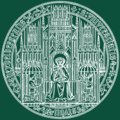Most present quantum-information schemes are based on manipulating atoms or ions in cold ensembles with extreme precision and offer unforeseeable future potential in computer technology. At the Physikalisches Institut Heidelberg of Heidelberg University various means of preparing and processing information in a well-controlled manner with quantum systems have been established. This includes single atoms in magneto optical traps, larger ensembles within BECs and so-called AtomChips involving thin quantum wire structures. Such quantum systems have been tested successfully for qubit operations and gate processing as well as quantum communication scenarios. It is aimed to obtain absolute control of all properties of single constituents of large ensembles and to minimize losses in quantum coherence. In particular, there is a clear demand in extending the quantum regime to increasingly large systems such that quantum computation may be applied to equally complex scenarios as classical computers today but far more efficiently and rapidly. Advanced theoretical methods for the description of correlated ultra-cold multi-atom quantum dynamics will be put forward as well. One of the visions here is to develop a dynamical mesoscopic environment for quantum information processing with neutral atoms.






